Most people get this wrong. They try to study for the LSAT by doing a bunch of questions, never looking back and never analyzing their strengths and weaknesses.
Then they’re surprised to find that their score has plateaued. Well, duh! If you’re not actively fixing your mistakes and learning from them, you will make the same mistakes over and over again.
21st Night is designed to help you learn from your mistakes on the LSAT.
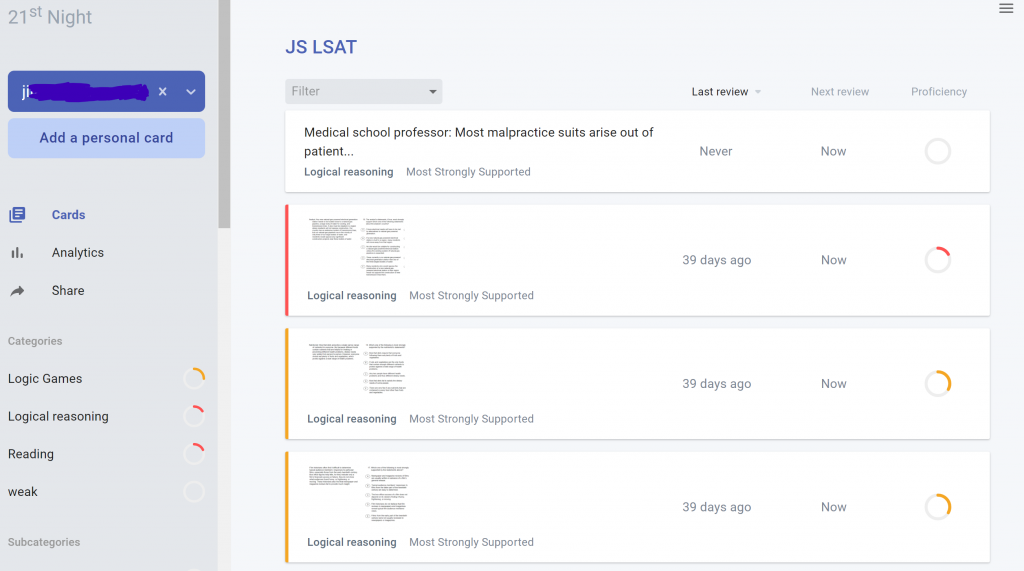
Real results
With the help of Trevor and the 21st Night error log, my LSAT scores increased from a 160 to a 175! Thank you for all of the help you provided me with in preparing for the LSAT.
Delaney Beck, Wagner University
Think this result is impressive? We’ve got a lot more.
How to use 21st Night
You can use 21st Night like normal flashcards, with questions on the front and answers on the back. That’s straightforward enough.
But that only works to memorize facts. How can you use 21st Night to remember techniques for the LSAT?
Well, you need to use it as an error log. When you use an error log, you’re not just memorizing facts, but mastering old questions.
If you master all the old questions from old exams, you’ll probably be pretty close to mastering the exam itself. There are only so many types of questions they can ask, right?
Now, to best use an error log, you need to
- Recognize a question you’re having trouble with
- Learn how to do it
- Review it before you forget
- Review it a couple times more to get it in your long term memory
- Figure out what question you need to do next
21st Night can help you with each of these steps. If you’d rather see it for yourself, you can also try 21st Night free.
Step 1: a problem is identified
Let’s say you’re working your way through Khan Academy for the LSAT. You come across a problem and it totally stumps you.
“I should know how to do this sort of question for the exam,” you think. So you put the question into 21st Night.
Step 2: learning how to do the question
When you put the question into 21st Night, you just copy-paste the whole thing in there, images and all.
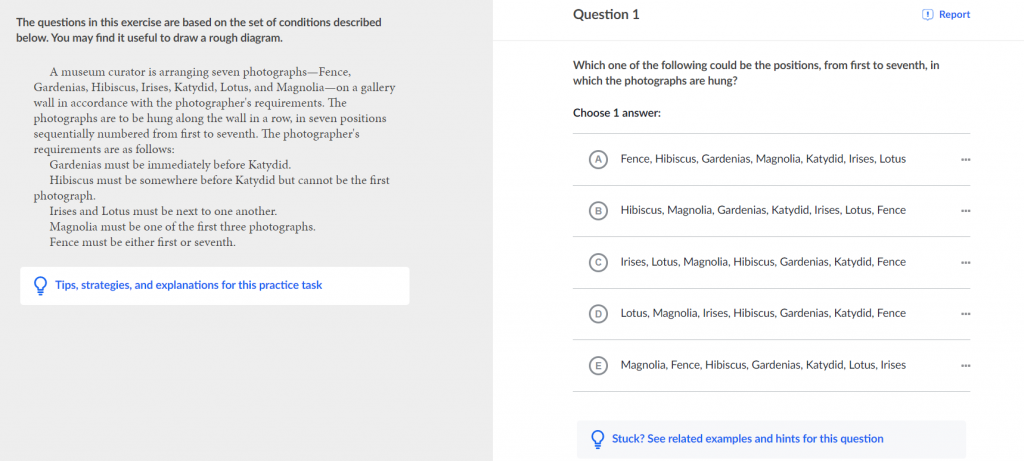
Fortunately, Khan Academy gives you a pretty good idea of how to classify this question, both by topic and subtopic. I’ve added in an additional subtopic as well.
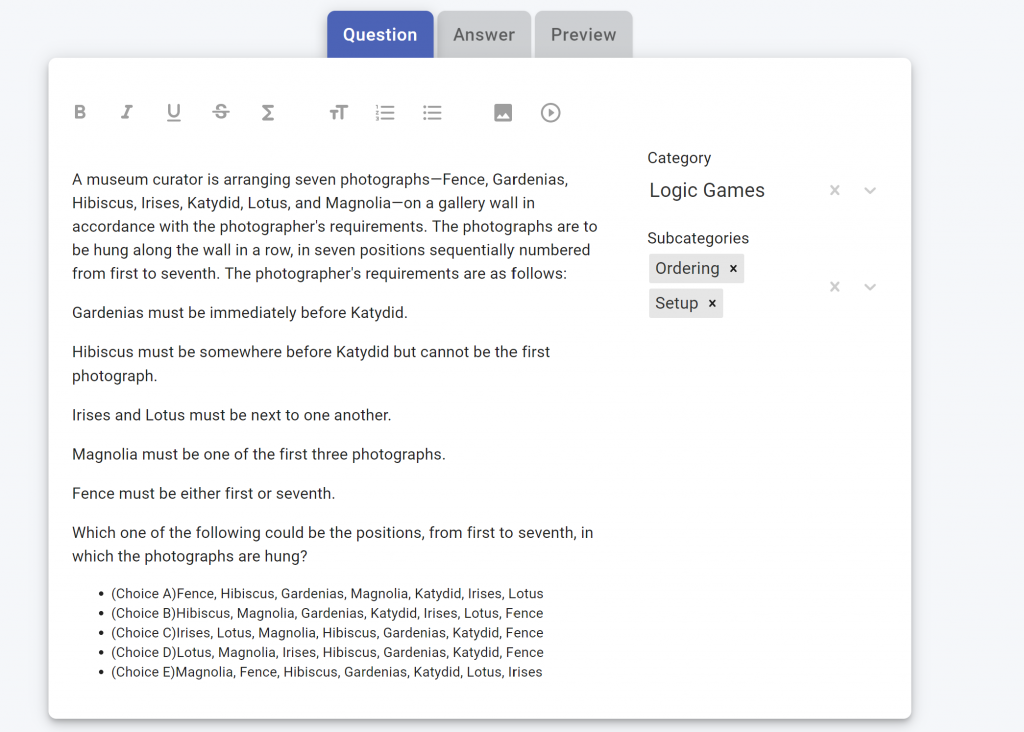
Now, you fill in the answer, an explanation (which you can just copy-paste from Khan), and a hint, which you should come up with yourself.
I know Khan provides you with a bunch of hints, but this is when it’s helpful to be reflective about your own learning. What did you need to know originally in order to solve this question?
Step 3: review the question before you forget how to do it
You can review questions on the web app or through your phone.
If you review through the web app, it’s pretty straightforward. You click to review what topic you’d like to see today, then you start reviewing.
You see the question as it was originally, then click to see answer. Afterwards, you can click to say whether this problem went well, ok, or not so good. This will determine when you see the problem next.
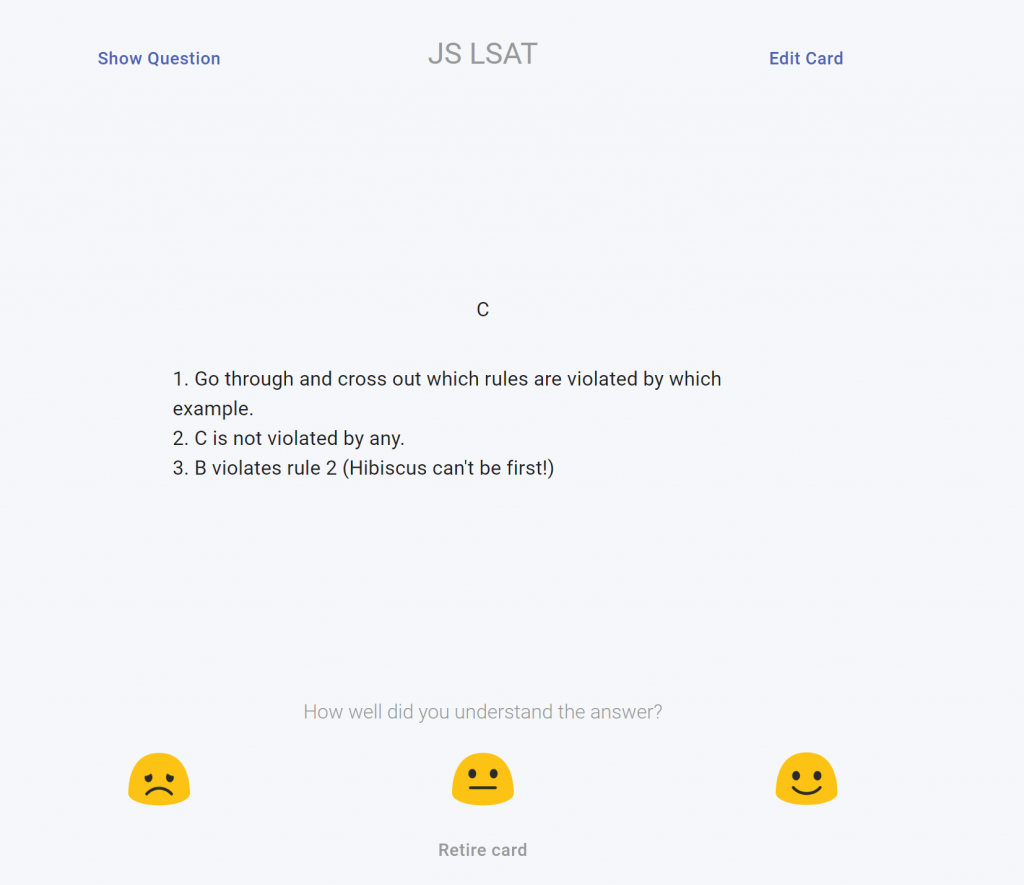
Step 4: put the question into your long-term memory
It’s pretty much impossible to remember a random question (or a topic) over the long-term if you just do it once.
Unfortunately, unless you plan on doing all of your studying the day or two before the exam, you’re going to need to.
That’s why 21st Night has you review questions periodically, even after you get them right (but especially after you get them wrong).

If you only want to review a particular question, you can just click to review it through the main screen. You don’t have to click “study deck”.
Step 5: figure out which questions to do next
Once you’ve added and reviewed a variety of cards, 21st Night can help you figure out what areas and questions you need to focus on with detailed analytics.
That way, each of your study sessions can be as productive as possible. You don’t have to waste time doing random questions with no rhyme or reason.
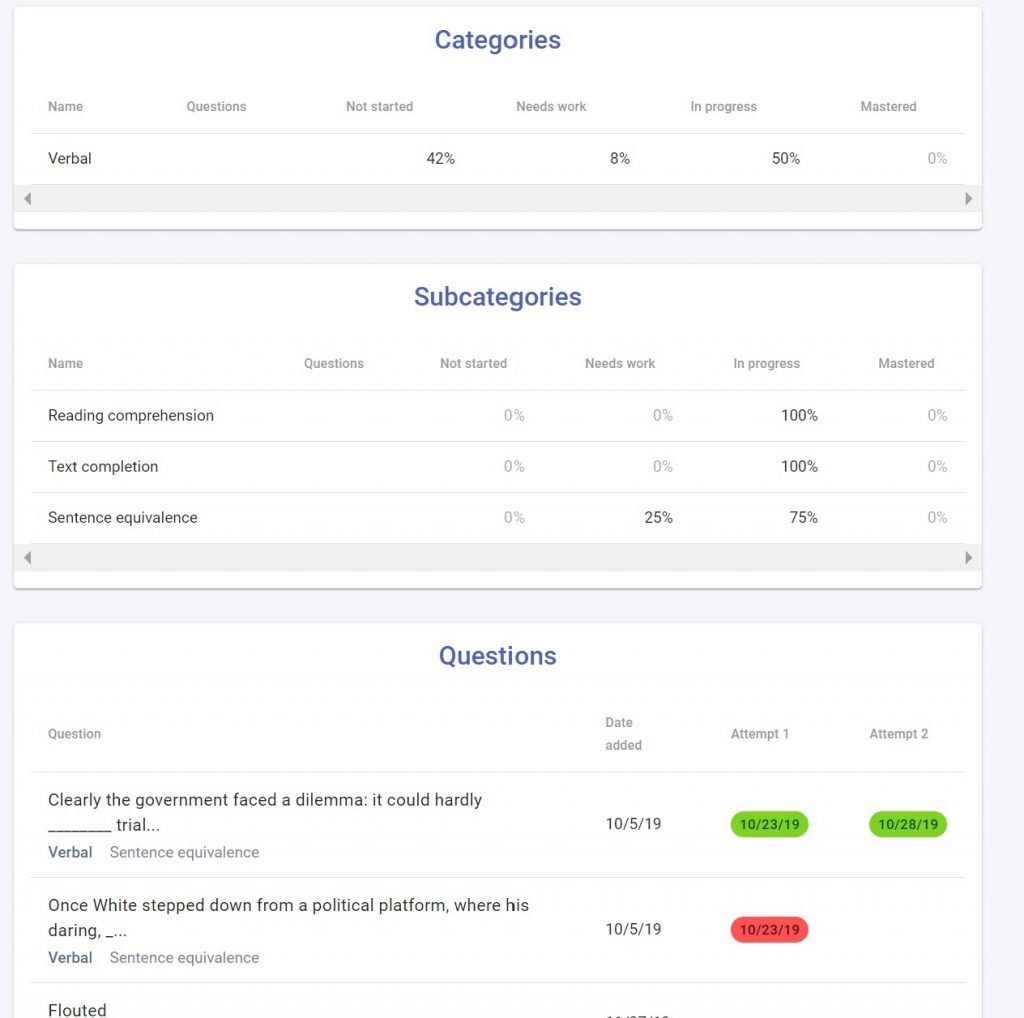
You can also look at the daily view to analyze how each session went per day and plan out your next session.
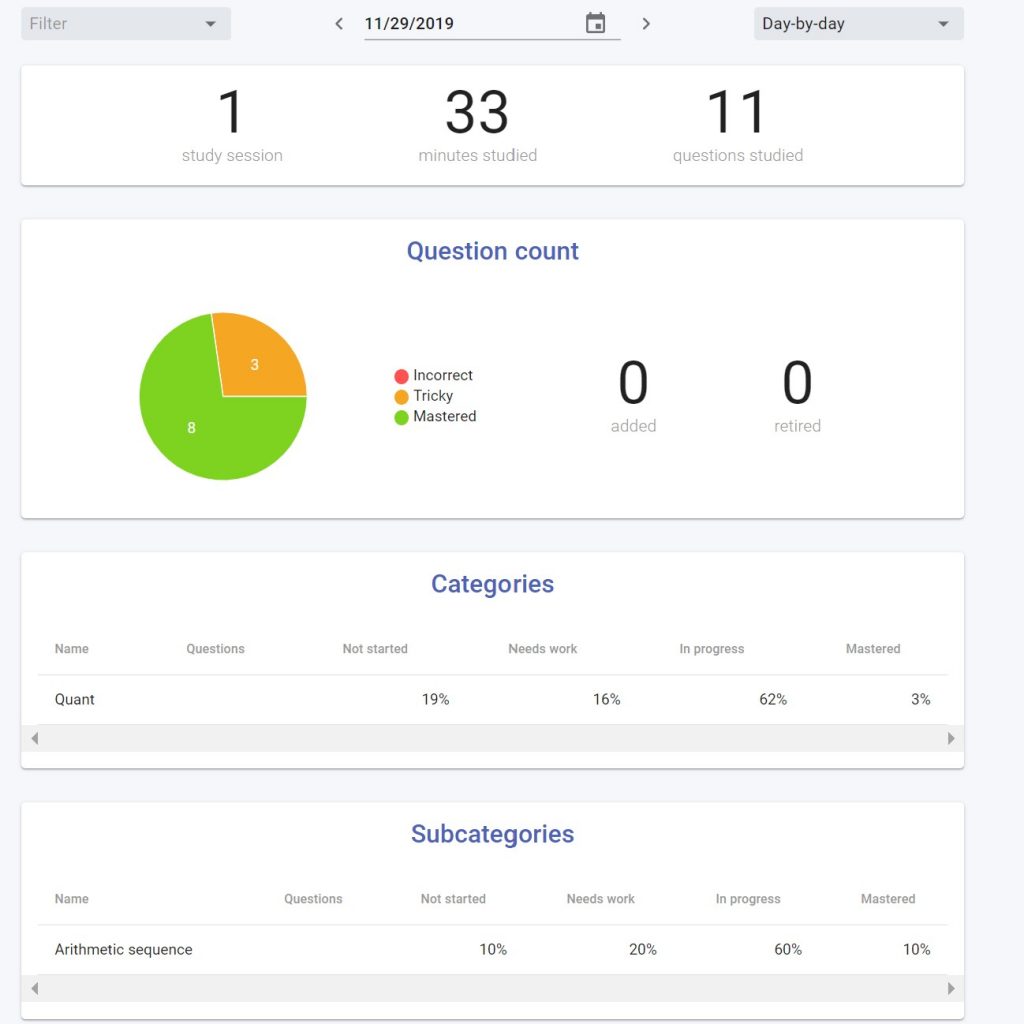
This way, you can be sure to make each study session as productive as possible. No more wasting time doing the wrong thing!
Want to start mastering your exam? Well, why not try 21st Night for free?